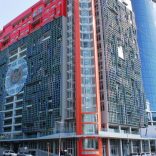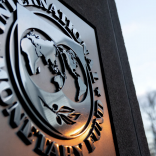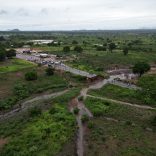Mozambican banks close 2024 with credit in default above the recommended level
Mozambique’s public debt stands at 120% of GDP – Central Bank Governor

Mozambique’s public debt “has gone from 40 percent of gross domestic product (GDP) in 2013 to around 120 percent now, and this is scary,” the Governor of the Bank of Mozambique has said.
Responding to questions during a debate at the Horasis Global Meeting, which runs until Tuesday in Cascais, near Lisbon, Portugal, Rogério Zandamela added that “part of this debt is the undisclosed debts, a huge amount”.
The central banker was, however, confident of the country’s ability to overcome the economic, budgetary and financial crisis in which it is plunged, but did not hide that there are many challenges ahead.
“We are one of the most blessed countries in the world [in terms of natural resources], but we need a development model that improves people’s lives as well as economic indicators,” the governor said, adding that high growth rates of 8 percent per year did not represent reality in the country.
“Foreign direct investment is good and a blessing for the country,” but it has the problem of “being concentrated in mines, coal and gas,” while “nothing else is happening in the remaining sectors”.
As an example, he pointed to agriculture.
“The sector is dormant, despite its enormous potential. The overwhelming majority of agriculture practiced is subsistence farming. The sector is completely underdeveloped, with very little of the agribusiness one sees in Brazil and Latin America, and part of that is because of the rules of investment. The law favours large investments, but [if] one tries to open a smaller business, it gets nowhere.”
The governor, who arrived late because of the problems at London airports, ended up concentrating on answering questions, and it was in one of those responses that he explained: “Seven or eight percent growth a year makes big headlines in the international press, but looking at what really matters, which is the people, we are not well, and macroeconomic policies are also not healthy”.
Mozambique, he noted, had accumulated budget deficits year after year, bailed out by foreign direct investment and international donors.
“If this is the development model that we continue to have, then we will have problems. We will have a lot of money, but we will continue to be poor, because the majority of the population does not have jobs or hospitals,” Zandamela said the governor, admitting that having lived abroad for 40 years, he felt something of an ‘outsider’ living at home.












Leave a Reply
Be the First to Comment!
You must be logged in to post a comment.
You must be logged in to post a comment.